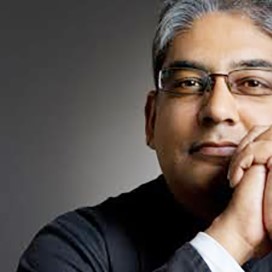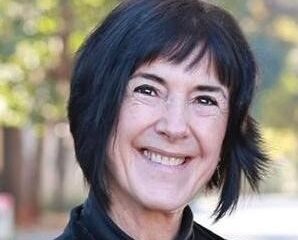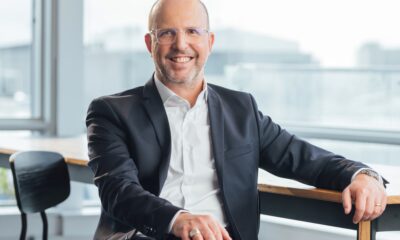
Featured Item

Historic webinar marks ‘academic accord’ between universities
Strong co-operation between the University of the Free State (UFS) and University of Haifa in Israel is to be marked next week with their first international webinar on the Middle East.
There will be an academic interchange and discourse between the two respected universities who have a signed memorandum of understanding (MoU) for co-operation between them.
Professor Hussein Solomon, senior professor in the department of political science at UFS, said, “Haifa is an academically strong university, and Middle East studies is still very underdeveloped in South Africa. If we can build on these ties with Haifa, we at the UFS can create an amazing, strong Middle East studies programme.”
Solomon, who is an expert in Middle East and North African (MENA) affairs, told the SA Jewish Report there was much to learn and share on issues affecting the region.
“The Middle East region is going through tectonic changes, and I think it is important to understand what’s going on. It’s also imperative that this understanding seeps into the South African consciousness because I don’t believe our academics are strong in terms of the Middle East. This relationship with Haifa, which I hope is the first of many, will help in terms of dealing with these gaps in South African scholarship.”
MoU facilitator and webinar convenor Dr Glen Segell, who is a fellow at the Ezri Center for Iran & Persian Gulf Studies at the University of Haifa, has been to UFS and has formed a close association with academics at the institution.
“Over the past few decades, staff from both universities have met at international conferences and have collaborated on various topics from Islam in Africa to security in the Horn of Africa, terrorism, and religious fundamentalism,” Segell said recently. “In April 2018, it was decided to form a MoU, which would afford academics the opportunity to expand on this relationship,” he said.
Not only would political science benefit from the MoU, Segell said, the departments of speech and hearing at both institutions were also collaborating. The idea is to learn from each other about a variety of topics of interest including political science but also economics, healthcare, water, the environment, and other areas.
Professor Solomon, whose book titled Arab MENA Countries: Vulnerabilities and Constraints Against Democracy on the Eve of the Global COVID-19 Crisis comes out later this year, said the universities planned to collaborate on future online courses and modules.
The webinar, he said, would give the universities the opportunity to exchange views on terror and related topics.
“As we move forward, I’m hoping this will lead to other engagements with other academic institutions and NGOs [non-governmental organisations] both in South Africa and outside our borders,” said Solomon.
“There is a lack of understanding of the region amongst our policy makers in South Africa. We want to hold certain international positions but without real understanding. I think it’s important for two academic institutions to get together and share.”
Rowan Polovin, the national chairperson of the South African Zionist Federation, said he was excited about this collaboration. “The agreement is one of the most important Israeli-South African academic developments in the democratic era. Already, thanks to this co-operation, other Israeli and international organisations are looking to partner and co-operate with South African institutions. It could very well be that this conference is South African academia’s ‘Abraham Accords’ moment. In fact, we’d like to call this the ‘Academic Accords’.”
An international workshop marking the MoU was due to be hosted by the University of Haifa in March this year, but was prevented from happening by the COVID-19 pandemic. It is being replaced by the webinar on 14 October.
Esteemed academics from both institutions will speak on an array of subjects. Some titles on Iran include, “The people’s voice: What can we and what can’t we learn from social media”; “The Threat of a Nuclear Iran: a dissident view”; and “Iran-Israel regional rivalry”.
On the Persian Gulf, some titles include, “The new government in Iraq and the Iraqi scene”; “Israel, the Gulf and the Palestinian Question: a new area?”; and “New diplomatic relations transforms geopolitics.”
Segell said that the idea of co-operation is that “the more you talk, the more you understand”.










